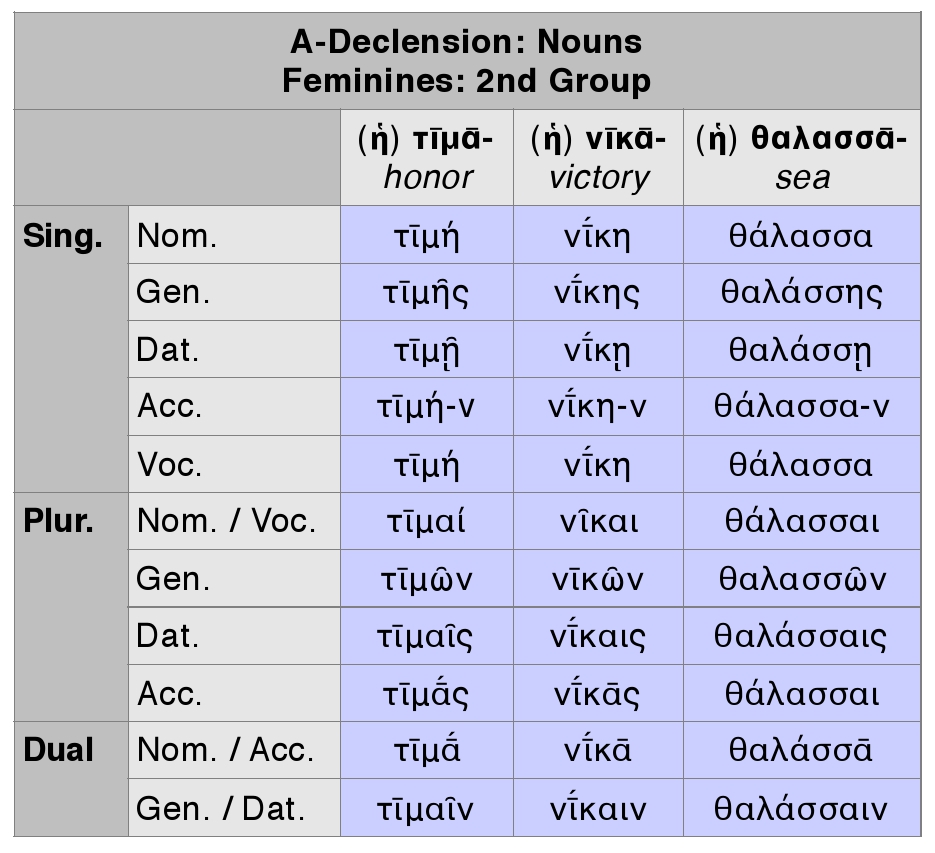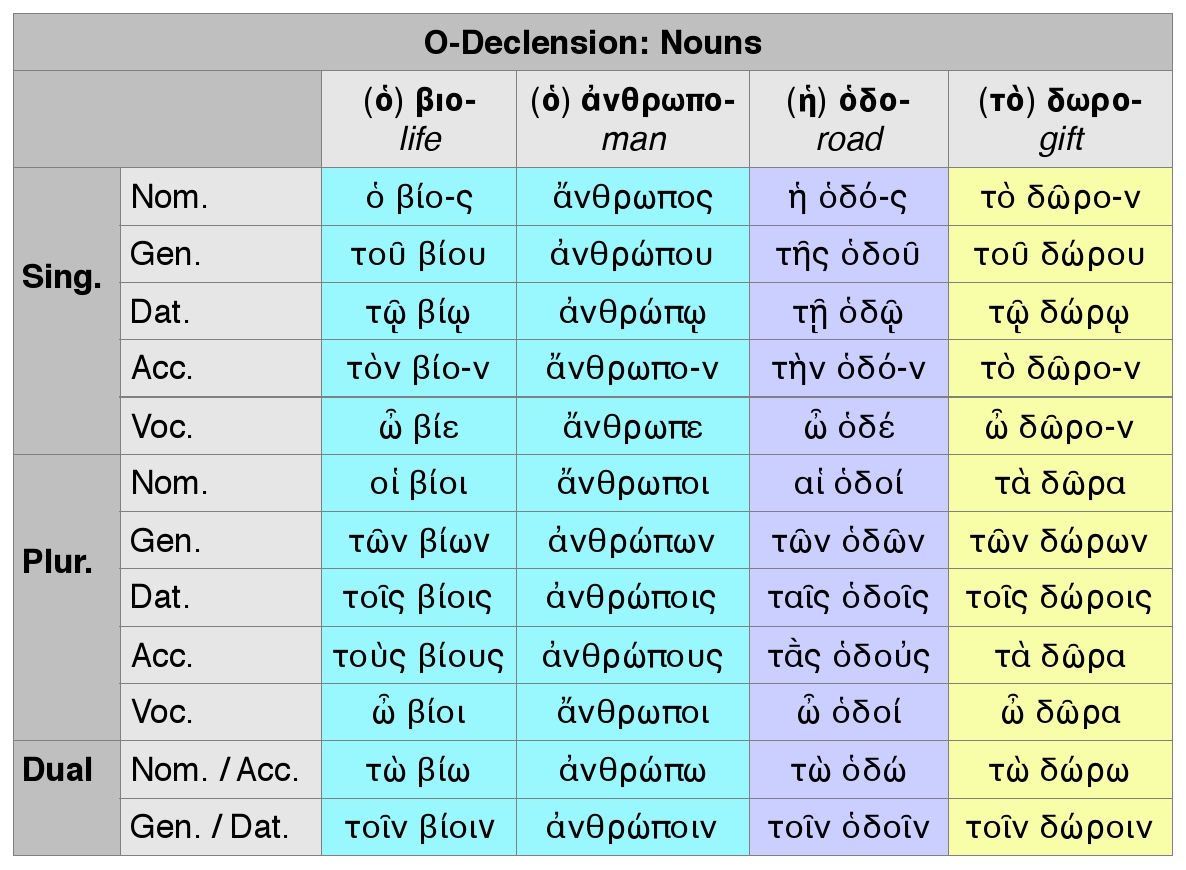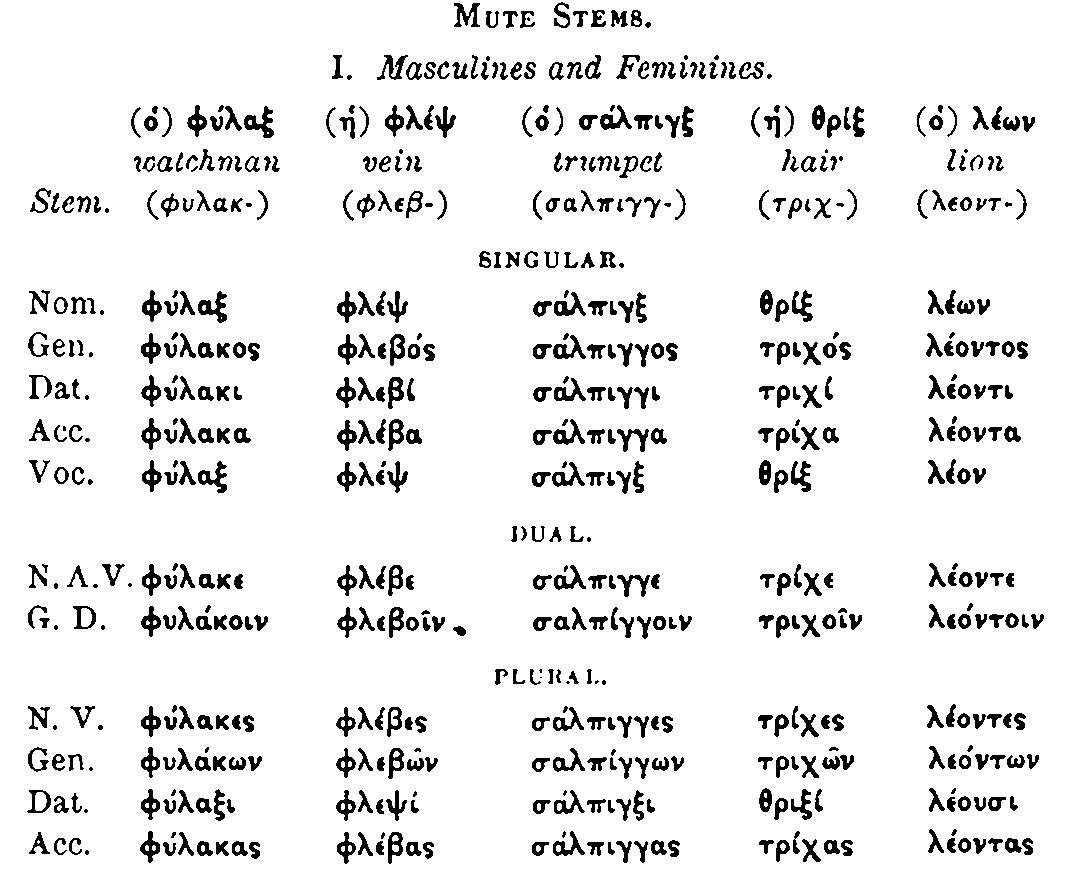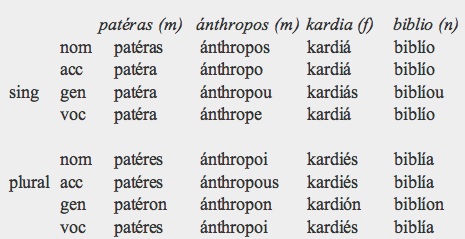Greek is a branch of the indo european language family which includes english in historical times it already existed in several dialects see article on greek dialects one of which was attic.
Attic greek declensions.
Since the stem vowels provide a sort of buffer between the stems and inflectional.
Buy the book or request an exam copy.
οἰκίᾱ building house χώρᾱ land place.
In attic greek most feminine nouns of the first declension have eta throughout the singular because long alpha was usually changed to eta in this dialect except after epsilon iota or rho.
The third or consonant declension.
An intensive course and mastronarde s introduction to attic greek but are mainly meant to provide one page overviews of some important verbal paradigms satisfactory versions.
Both inflect the same s 238.
The ancient greek third declension also known as the consonant declension comprises the most diverse and potentially confusing forms of nominal inflection.
The a and o declensions.
This is two pages.
The earliest written records in greek date from the 16th to 11th centuries bc and exist in an archaic writing system linear b belonging to the mycenaean greeks.
νεώς νεώ temple and λεώς λεώ the people folk.
It is just a difference in pronunciation.
λᾰμβᾰ νον attic.
This change has no meaning.
Nouns and adjectives in ης and υς.
For declension in other dialects see appendix ancient greek dialectal declension.
This change in pronunciation is so peculiar to the athenians and their attic dialect that second declension εως nouns are called attic declension nouns s 237 238.
After ε ι or ρ in attic and koine greek when a first declension noun has a stem ending in ε ι or ρ ᾱ appears instead of η in all cases in the singular e g.
The first declension genitive plural always takes a circumflex on the last syllable.
The first declension includes mostly feminine nouns but also a few masculine nouns including agent nouns in της patronyms in ίδης and demonyms.
The attic declension is a group of second declension nouns and adjectives in the attic dialect of ancient greek all of whose endings have long vowels in contrast normal second declension nouns have some short vowels and some long vowels.
In attic greek this changes to η everywhere except after ε ι or ρ.
Nominative singular in nu first and third declension of λᾰμβᾰ νων.
Many parts of this site will be helpful however to anyone beginning or reviewing.
This declension is called attic because in other dialects including ionic and koine the nouns are declined normally.










